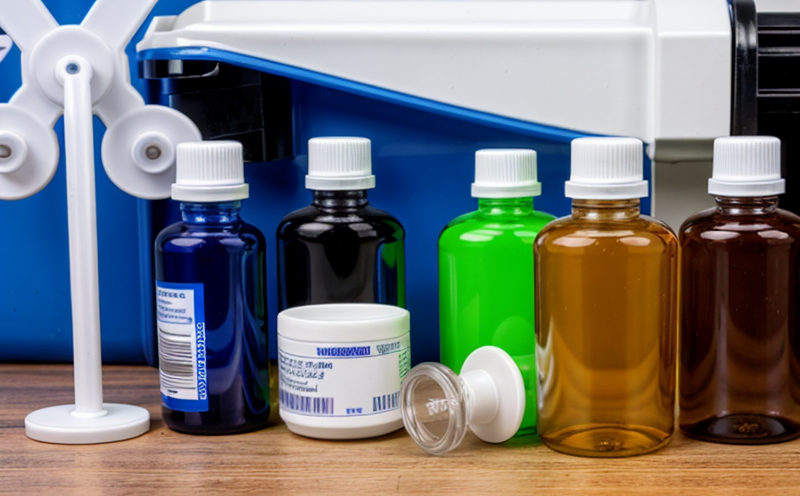Medical & Pharmaceutical Waste Testing
The sector of waste management and recycling is critical in ensuring environmental sustainability and public health. Within this context, medical & pharmaceutical waste testing plays a pivotal role in safeguarding the environment and human health from the hazardous materials that can be found within these types of waste streams.
Medical and pharmaceutical waste includes items such as sharps (needles, syringes), chemicals, cultures, and solutions used in healthcare facilities. These wastes are classified into categories based on their potential for harm to humans or animals. Proper testing is necessary to ensure that the proper disposal methods are followed, thereby reducing the risk of accidental exposure.
The primary goal of medical & pharmaceutical waste testing is to identify any hazardous substances present and determine if they meet regulatory standards for safe handling and disposal. Regulatory bodies such as the U.S. Environmental Protection Agency (EPA) and the World Health Organization (WHO) provide guidelines that laboratories must follow when performing these tests.
The testing process typically involves several steps, including:
- Sampling of waste materials
- Preparation of samples for analysis
- Analytical methods using various instruments such as gas chromatography-mass spectrometry (GC-MS), high-performance liquid chromatography (HPLC), and inductively coupled plasma mass spectrometry (ICP-MS)
- Interpretation of results to determine compliance with regulatory standards
The laboratory must adhere strictly to international standards such as ISO 17025 for quality management systems, ensuring that all tests are conducted accurately and reliably. The data generated from these tests is crucial in making informed decisions regarding the disposal methods used.
| Industry Application | Description |
|---|---|
| Hospitals and Clinics | Testing of waste generated from patient care, including sharps containers. |
| Pharmaceutical Manufacturing Plants | Analysis of wastewater to ensure compliance with environmental regulations. |
| Laboratories | Testing of waste generated from research activities, including chemical and biological agents. |
The importance of accurate and reliable testing cannot be overstated. It ensures that all stakeholders in the medical and pharmaceutical sectors are adhering to best practices for waste management and recycling. This not only protects public health but also contributes positively to environmental conservation efforts globally.
Why It Matters
The significance of proper testing cannot be emphasized enough, especially given the increasing awareness about sustainability and corporate social responsibility. Proper medical & pharmaceutical waste management is essential for several reasons:
- To prevent environmental pollution caused by hazardous materials in waste streams.
- To ensure compliance with local, national, and international regulations regarding waste disposal.
- To protect human health from potential exposure to harmful substances through improper handling or disposal of medical and pharmaceutical wastes.
Failure to comply with these standards can lead to severe consequences, including legal penalties, fines, and damage to the reputation of organizations involved in healthcare and pharmaceutical manufacturing. By investing in robust waste testing protocols, facilities can mitigate risks associated with non-compliance and demonstrate their commitment to sustainable practices.
Benefits
- Compliance Assurance: Ensuring that all waste management procedures adhere to international standards like ISO 17025.
- Risk Mitigation: Reducing the risk of accidental exposure to hazardous substances through proper waste disposal methods.
- Environmental Protection: Minimizing environmental impact by ensuring that all wastes are handled safely and effectively.
- Reputation Enhancement: Demonstrating a commitment to sustainability and corporate social responsibility, which can enhance an organization's reputation among consumers and stakeholders.
The benefits of thorough medical & pharmaceutical waste testing extend beyond mere regulatory compliance. They contribute significantly to the overall health and safety of individuals involved in healthcare facilities and those who handle or dispose of such wastes. By adhering to best practices, organizations can create a safer and more sustainable environment for all.
Industry Applications
| Institution Type | Description |
|---|---|
| Hospitals and Clinics | Testing of medical waste, including sharps containers and chemical waste. |
| Laboratories | Analysis of laboratory waste to ensure compliance with environmental regulations. |
| Pharmaceutical Manufacturing Plants | Testing of wastewater and solid pharmaceutical waste for hazardous materials. |
The application of this testing extends across various sectors, each with its unique challenges and requirements. For instance, hospitals must ensure that all sharps containers are properly tested to prevent the spread of infectious diseases. Similarly, pharmaceutical manufacturing plants need to test their wastewater rigorously to avoid contaminating water sources.





